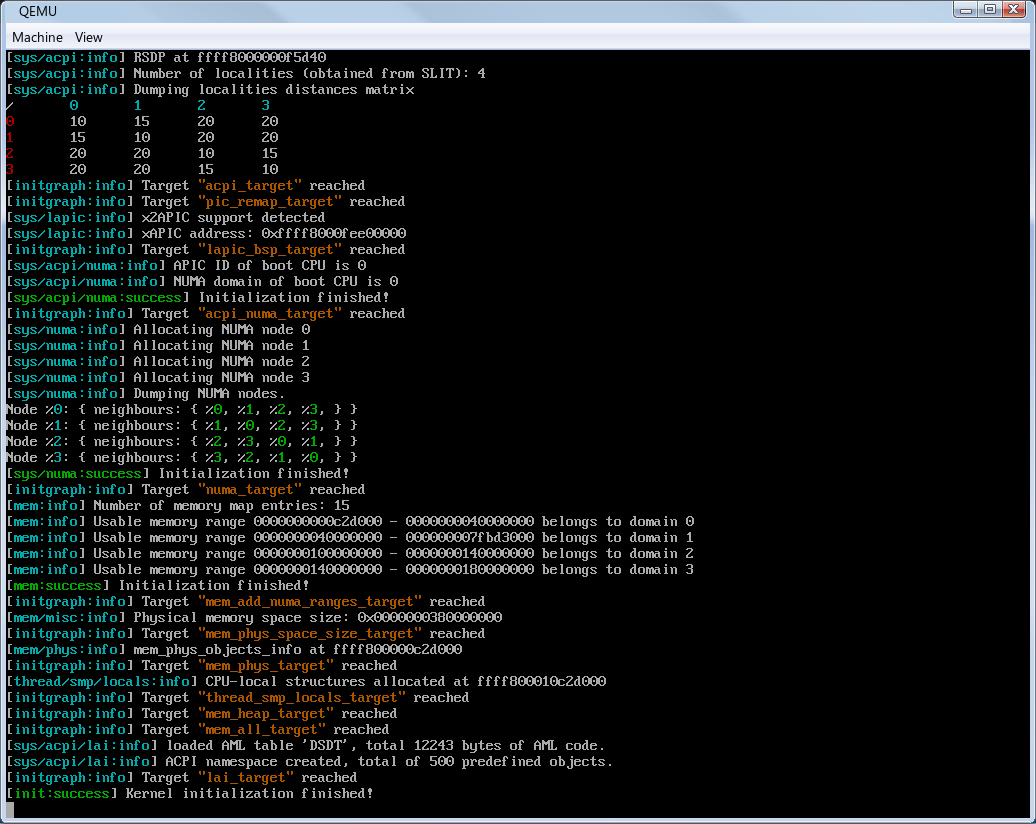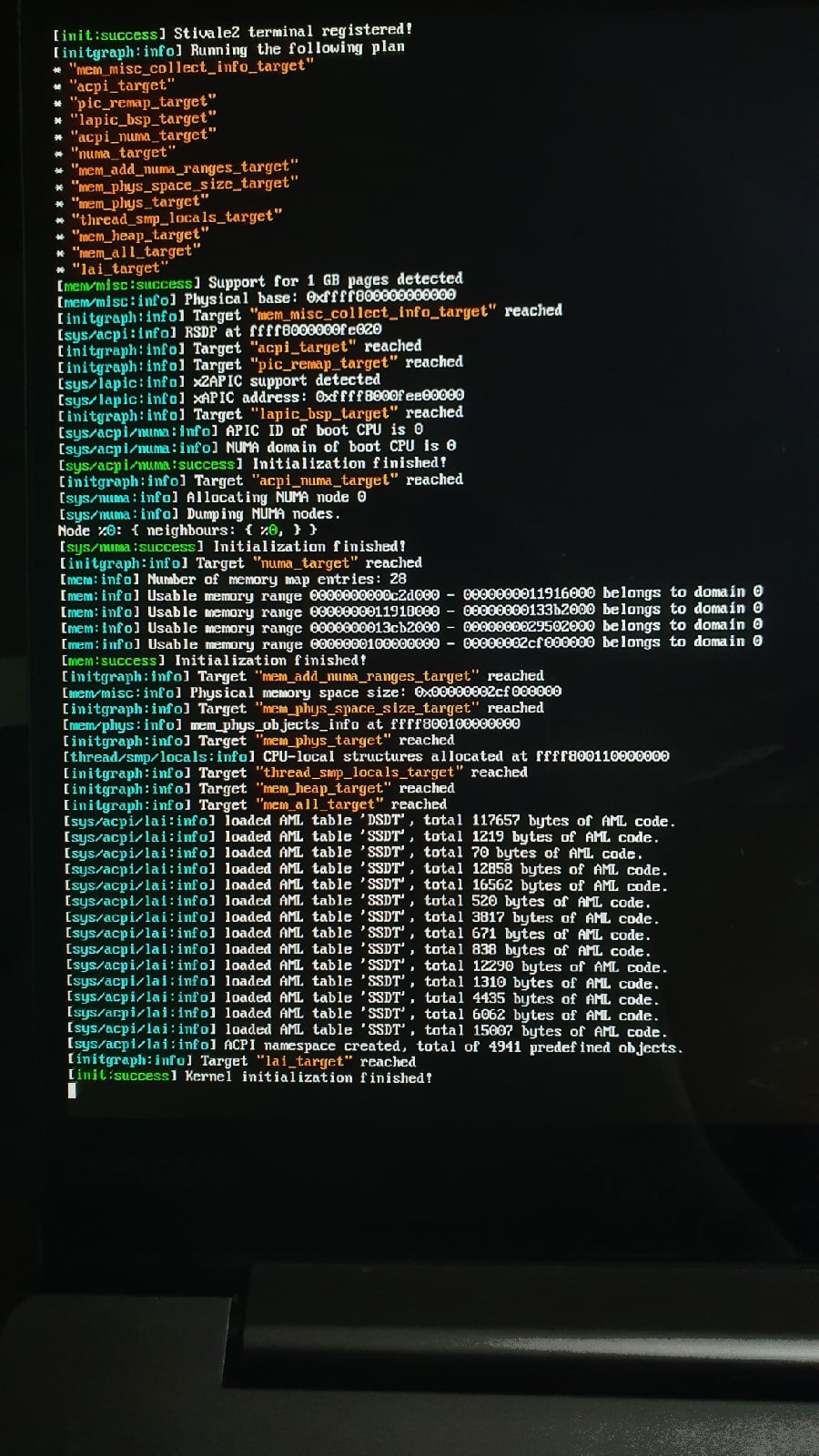lezione-os fork that I am using as a playground to experiment with SMP, NUMA and load balancing
If you don't want to build ricerca, you can download latest images from nightly tag. Those are built on CI after every commit.
Install python3, rsync, qemu-system, xorriso, fasm and build-essential packages.
On systems with apt installed
sudo apt update
sudo apt install rsync qemu-system xorriso fasm build-essentialInstall xbstrap from pip: pip3 install xbstrap.
Run make build-release/make build-debug in root directory to build release image (OS image with kernel built in release mode) and image for debugging respectively.
Run make run-release-kvm to run release image in QEMU with KVM enabled. If KVM is not available, you can use make run-release-tcg command.
Run make run-safe-kvm to run safe image (equivalent to the release image, but assertions are enabled) in QEMU with KVM enabled. If KVM is not available, you can use make run-safe-tcg command.
Run make debug to run debug image in QEMU. QEMU will wait for debugger to be attached. Run make gdb-attach in a separate terminal to start GDB and attach it to QEMU
While there is no apparent reason why ricerca could break your hardware, there is no warranty (to the extent permitted by law). Run ricerca on any real hardware at entirely your own risk. If you decide to run ricerca on your PC and it breaks, it is solely your responsibility since you have been warned.
Having said that, it is indeed possible to run ricerca on your PC. Just copy image to a USB stick. Thanks to limine, ricerca can run both on UEFI and legacy BIOS.
I recommend to burn ricerca-safe.iso since it has assertions enabled.
Here is the debug log printed on my laptop

